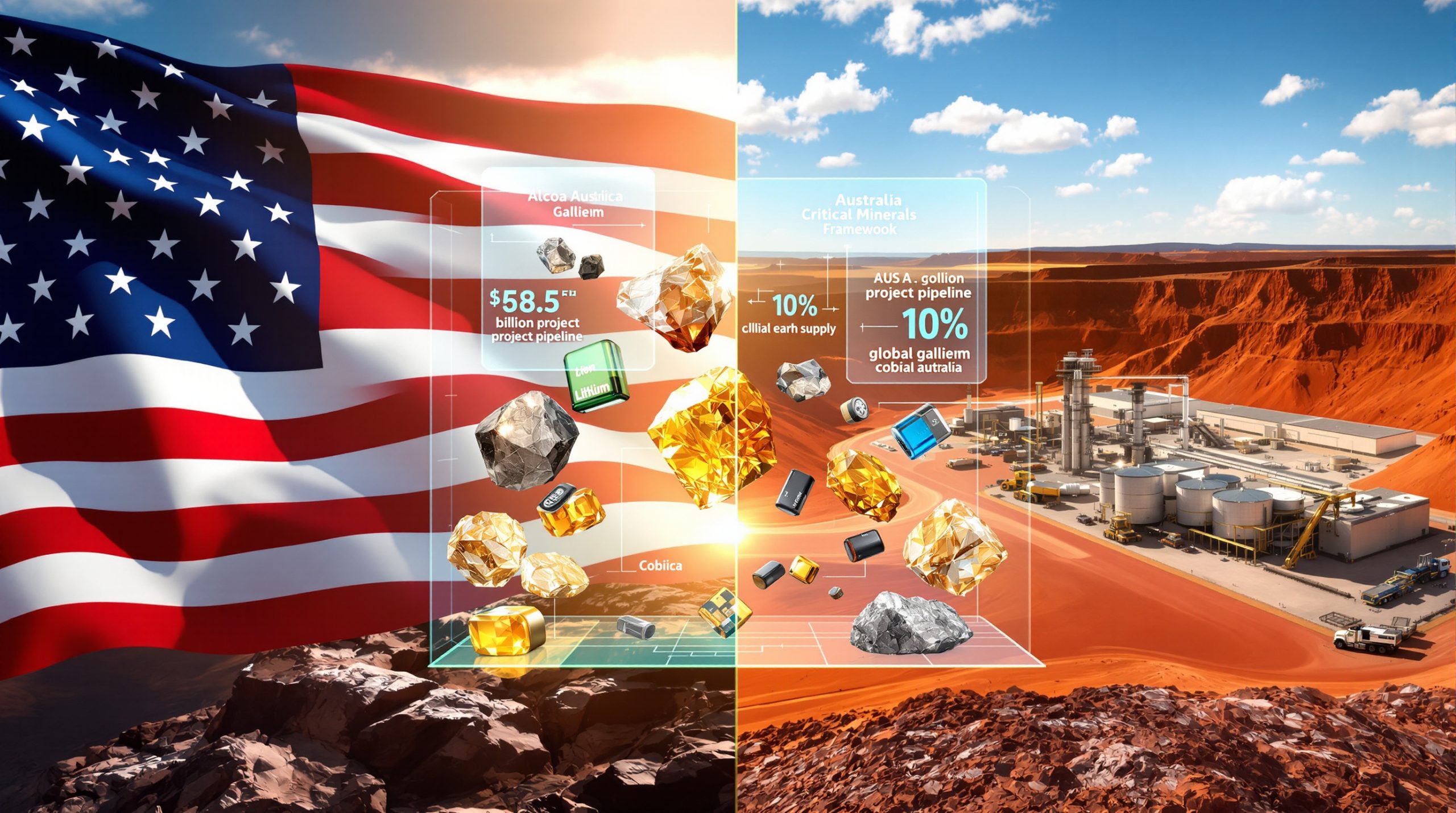Belgium's Evolving Role in Congo's Mineral Sector: Opportunities and Challenges
Belgium's historical and contemporary involvement in the Democratic Republic of Congo's (DRC) mineral sector reflects a complex interplay of economic interests, geopolitical strategy, and post-colonial dynamics. As Congo seeks to diversify its mining partnerships amid China's dominance, Belgium positions itself as a partner offering technological expertise and sustainable practices. This report examines the current state of the Belgium and Congo minerals sector, Congo's diversification efforts, strategic resource importance, challenges in mining development, and future prospects for bilateral cooperation.
What is the Current State of Belgium-Congo Mineral Relations?
Historical Context of Belgium-Congo Economic Ties
Belgium's colonial legacy in Congo, established in the late 19th century under King Leopold II, laid the foundation for extractive economic practices centered on rubber, ivory, and minerals. Following the brutal exploitation during the Congo Free State period (1885-1908), the Belgian Congo era saw more structured mineral development, particularly in the copper-rich Katanga region.
Post-independence in 1960, Belgian corporations maintained significant influence in Congo's mining sectors despite political upheaval. Companies like Union Minière (later Umicore) retained technical expertise and market connections even after the nationalization waves of the 1970s under President Mobutu.
The relationship evolved through Congo's civil conflicts in the 1990s and early 2000s, with Belgian firms adapting to changing political landscapes while maintaining strategic positions in mineral trading networks. This historical continuum provides Belgian companies with institutional knowledge and established relationships that newer market entrants lack.
Belgium's Current Mineral Sector Involvement
Belgian companies maintain significant roles in Congo's cobalt, copper, and diamond sectors, leveraging historical ties and technical expertise. Umicore, a global materials technology leader that evolved from Congo's colonial-era mining company, recently secured a strategic agreement with state-owned Gecamines to export germanium concentrates to Europe—a critical material for semiconductor and solar panel manufacturing.
John Cockerill, another Belgian industrial firm, provides advanced technological solutions for mineral processing, helping Congo develop value-added capabilities rather than merely exporting raw materials. The company specializes in metallurgical equipment that enables more efficient recovery of critical minerals.
Beyond individual companies, Belgium serves as a crucial mineral trading hub through the port of Antwerp, which processes approximately 60% of global cobalt and remains a significant diamond trading center. This established infrastructure gives Belgian firms competitive advantages in logistics and market access.
Why is Congo Seeking to Diversify its Mining Partners?
China's Dominant Position in Congolese Mining
Chinese companies have established overwhelming control over significant portions of Congo's mineral production during the past two decades. The landmark $6 billion Sicomines deal in 2008 set the template for China's resources-for-infrastructure model, giving Chinese entities access to vast copper and cobalt reserves in exchange for roads, hospitals, and other infrastructure projects.
Today, Chinese firms control an estimated 70% of Congo's cobalt production and have dominant positions in copper extraction. Companies like China Molybdenum, Huayou Cobalt, and CNMC have acquired major mining assets, often through arrangements that have drawn criticism for their lack of transparency.
This concentration creates significant economic dependence risks for Congo. When Chinese battery manufacturers temporarily reduced cobalt purchases in 2019-2020, the impact on Congo's mining communities was immediate and severe, with thousands of artisanal miners losing their livelihoods overnight.
Congo's New Investment Partnership Strategy
The DRC government has launched a deliberate strategy to reduce its overreliance on Chinese investment through active diplomatic and commercial outreach to Western nations. President Félix Tshisekedi has emphasized the need for "partnership diversification" in several international forums.
"We cannot build our country's future on arrangements that benefit primarily foreign interests. Congo's resources must develop Congo first." — DRC official statement, 2023
Ongoing discussions with Washington have explored potential minerals-for-security arrangements, whereby American mining investments would help fund Congo's security needs against armed groups in eastern provinces. A Congolese senatorial delegation recently met with US officials to discuss new geopolitical investor strategies focusing on critical minerals.
Belgium fits into this diversification strategy as both a historical partner and an entry point to broader European markets. The EU's Critical Raw Materials Act, which aims to reduce dependency on single-country suppliers like China, creates opportunities for Congo to position itself as a reliable supplier to European green technology manufacturers.
What Resources Make Congo Strategically Important?
Congo's Critical Mineral Wealth
The DRC possesses a mineral endowment of extraordinary global significance:
- Cobalt: Approximately 70% of world reserves, essential for lithium-ion batteries
- Copper: 10% of global reserves with particularly high-grade deposits
- Lithium: Growing importance with the Manono project containing one of the world's largest hard-rock lithium deposits
- Tantalum: 60% of global supplies, critical for electronics
- Germanium: Significant deposits of this semiconductor material
- Uranium: Substantial reserves, though largely unexploited since the Shinkolobwe mine closure
The strategic importance of these minerals has escalated dramatically with the global energy transition and technological evolution. Electric vehicles require up to 10kg of cobalt per battery, while renewable energy storage systems depend heavily on copper infrastructure.
The Manono lithium project, when fully developed, could produce an estimated 700,000 tonnes of lithium carbonate equivalent annually, potentially transforming global supply dynamics for this battery essential mineral. This has contributed to what analysts are calling a new commodity super cycle reshaping global investments.
Challenges to Resource Development
Despite its mineral wealth, Congo faces substantial obstacles to maximizing the value of these resources:
Chronic regional instability, particularly in the eastern provinces, disrupts mining operations and deters long-term investment. The resurgence of M23 rebels, allegedly supported by Rwanda, has forced the closure of numerous mining operations in North Kivu province.
Infrastructure limitations create significant economic bottlenecks, with inadequate power supply being particularly problematic. The country currently has just 2.5 gigawatts of installed electricity capacity—woefully insufficient for energy-intensive mining and processing operations. Transportation challenges add approximately 40% to mineral export costs compared to more developed mining jurisdictions.
Governance challenges persist in the form of contract opacity, corruption (estimated to cost the sector over $1 billion annually in lost revenues), and regulatory uncertainty. The 2018 Mining Code revisions, which increased royalty rates and declared cobalt a "strategic substance," created tension with established mining companies.
Environmental and social concerns include widespread artisanal mining involving an estimated 200,000 workers in hazardous conditions, deforestation, and water pollution from unregulated operations. These socio-environmental challenges have become increasingly important for companies seeking to maintain ethical supply chains.
How Does Belgium Position Its Approach to Congo's Minerals?
Belgium's "Mutual Benefit" Strategy
Belgian Foreign Minister Maxime Prevot has emphasized a partnership approach that distinguishes Belgium from competitors seeking access to Congo's resources:
"We observe the motivations of other international actors that can sometimes have a more transactional approach. Belgium's vision is focused on mutual benefit and sustainable development."
This represents a deliberate contrast with China's resources-for-infrastructure model, which has been criticized for creating debt dependencies and extracting raw materials without developing local processing capabilities, according to a recent Reuters report.
Belgium emphasizes technology transfer and value-added processing as central to its engagement strategy. Rather than merely extracting raw materials, Belgian investments aim to build processing capabilities within Congo, creating more local employment and economic value.
Long-term relationships form another pillar of the Belgian approach, building on historical connections while acknowledging past injustices. This approach resonates with Congolese authorities seeking partners who contribute to genuine economic development rather than mere resource extraction.
Belgian Corporate Capabilities
Umicore has transformed from a traditional mining company into a global materials technology leader, with particular expertise in:
- Recycling technologies for battery materials and precious metals
- Sustainable sourcing and traceability systems for conflict minerals
- Advanced refining processes for high-purity cobalt and germanium
- Battery material research and development
John Cockerill brings specialized capabilities in:
- Custom metallurgical processing equipment design
- Critical materials recovery technologies
- Renewable energy integration for mining operations
- Water treatment solutions for mining effluent
These technological capabilities align with Congo's need to move up the value chain from raw material extraction to higher-value processing activities. Belgian firms' experience with sustainability certification and responsible sourcing also helps address concerns about environmental and social impacts of mining.
What Factors Complicate Mining Development in Congo?
Security Situation in Eastern Congo
The ongoing conflict in eastern Congo presents the most immediate challenge to mining development. The M23 rebel movement, which Rwanda allegedly supports (though Rwanda denies this), has displaced over 1 million people and disrupted mining activities across North Kivu province.
UN experts have documented the systematic exploitation of mineral resources to finance armed groups, with an estimated $1.2 billion in minerals smuggled annually through neighboring countries. This "conflict minerals" problem persists despite international certification efforts like the OECD Due Diligence Guidance.
Belgium has focused significant diplomatic efforts on addressing these security issues, supporting the UN peacekeeping mission MONUSCO and advocating for regional dialogue. However, the security situation has deteriorated since 2022, with M23 capturing territory near key mining areas.
The connection between mineral resources and conflict financing creates a vicious cycle: insecurity prevents legitimate mining development, while illegal mining provides funding for armed groups that perpetuate insecurity.
Investment Environment Challenges
Beyond security concerns, investors face numerous obstacles:
Regulatory uncertainty has plagued the sector, with the 2018 Mining Code revisions creating tensions between the government and established mining companies. The code increased royalty rates from 2% to 10% for strategic minerals and required 10% Congolese ownership, leading to protracted disputes with several major mining firms.
Infrastructure deficiencies severely impact operational efficiency:
- Electricity shortages force reliance on expensive diesel generation
- Road and rail limitations increase transport costs by 30-40%
- Telecommunication gaps hinder modern mining management systems
- Port congestion adds unpredictable delays to export timeframes
International competition for access has intensified as strategic resources become critical for energy transition technologies. Chinese companies have established dominant positions, while American, European, and Middle Eastern interests increasingly compete for remaining assets.
What Are the Future Prospects for Belgium-Congo Mineral Cooperation?
Potential Areas for Expanded Collaboration
Several promising avenues exist for deeper Belgium-Congo cooperation in the mineral sector:
Processing and refining facilities within Congo represent the highest-value opportunity. Belgian technical expertise could support developing local refineries for cobalt, copper, and lithium, creating thousands of skilled jobs and significantly increasing export revenues. A copper refinery producing 99.99% pure cathode could generate a 25% premium over concentrate exports.
Technology transfer for sustainable mining practices offers another collaborative area. Belgian firms like Umicore have developed water recycling systems that reduce freshwater consumption by up to 85% and minimize chemical usage—technologies that could significantly improve Congolese operations' environmental performance.
Joint ventures in emerging mineral sectors like lithium present greenfield opportunities. The Manono lithium project, with estimated reserves of 400 million tonnes, could benefit from Belgian processing expertise to produce battery-grade lithium carbonate rather than exporting raw ore.
Development of more equitable investment frameworks that balance investor returns with national development goals. Belgian experience with public-private partnerships could inform new contract structures that ensure fair revenue sharing and local content requirements.
Strategic Implications for Global Supply Chains
Congo's minerals are indispensable for the global energy transition, with demand projections indicating that cobalt requirements will triple by 2030 to support electric vehicle production. European manufacturers face particular pressure to secure ethical supply chains as EU regulations on battery materials tighten.
Belgium can serve as a European gateway for Congolese minerals, leveraging Antwerp's established role as a trading hub and Umicore's processing capabilities. This positioning aligns with the EU's Critical Raw Materials Act, which aims to reduce dependency on Chinese processing facilities.
Competition with China and other global powers for resource access will intensify as clean energy technologies scale up. Belgium's historical ties and technical expertise offer competitive advantages, but require consistent diplomatic engagement and investment commitments to maintain relevance against larger economic powers.
The development of transparent and traceable supply chains presents both a challenge and opportunity. Belgian companies have pioneered blockchain-based traceability systems that could help Congo's minerals command premium prices in markets demanding ethical sourcing certification. These mining investment strategies are becoming increasingly important in the global minerals market.
Conclusion
Belgium's evolving role in the Belgium and Congo minerals sector represents a complex interplay of historical ties, strategic interests, and economic opportunity. As Congo seeks to diversify its mining partnerships and capture more value from its mineral wealth, Belgium offers technological expertise and market access that complement Congo's resource abundance.
Significant challenges remain, particularly in security, infrastructure, and governance. However, the mutual interests in developing sustainable and ethical supply chains for critical minerals create a foundation for expanded cooperation. Belgium's "mutual benefit" approach, if implemented effectively, could help transform Congo's mineral wealth into genuine economic development rather than merely continuing extractive patterns established during the colonial era.
The global energy transition and technological evolution ensure that Congo's minerals will remain strategically crucial for decades to come. How Belgium and Congo navigate their shared future in this sector will have implications far beyond bilateral relations, potentially influencing global commodities insights and the pace of clean energy adoption worldwide.
Want to Be Among the First to Discover the Next Major ASX Mining Opportunity?
Discovery Alert's proprietary Discovery IQ model instantly notifies investors about significant mineral discoveries on the ASX, helping you identify investment opportunities like those in Congo's critical minerals sector before the broader market catches on. Explore historic discovery returns and start your 30-day free trial at Discovery Alert's discoveries page.




